News
Here we will write
things that happen, things I think, things I make, things you tell me, things you believe in.
QUÈ T'HA ENSENYAT LA VIDA? (202 VEUS) / WHAT DOES LIFE TEACH YOU? (202 VOICES)
David Pagès i Cassú, a writer among many other things, wrote the book “Què t’ha ensenyat la vida? (202 Veus) ((What Does Life Teach You? (202 Voices) )) (2019, Curbet Edicions), which consisted of interviews with 202 people. One of whom was me.
Yesterday, Sunday, he wrote me the following:
«Priest Benet Galí, from the Parish of Sant Narcís in Girona, transcribes each week in the of the Parish Sheet one of the answers from the book “Què t’ha ensenyat la vida? (202 Veus)”, which I had the pleasure of coordinating. This week he transcribed yours».
So I’m bringing it as News of the Week.
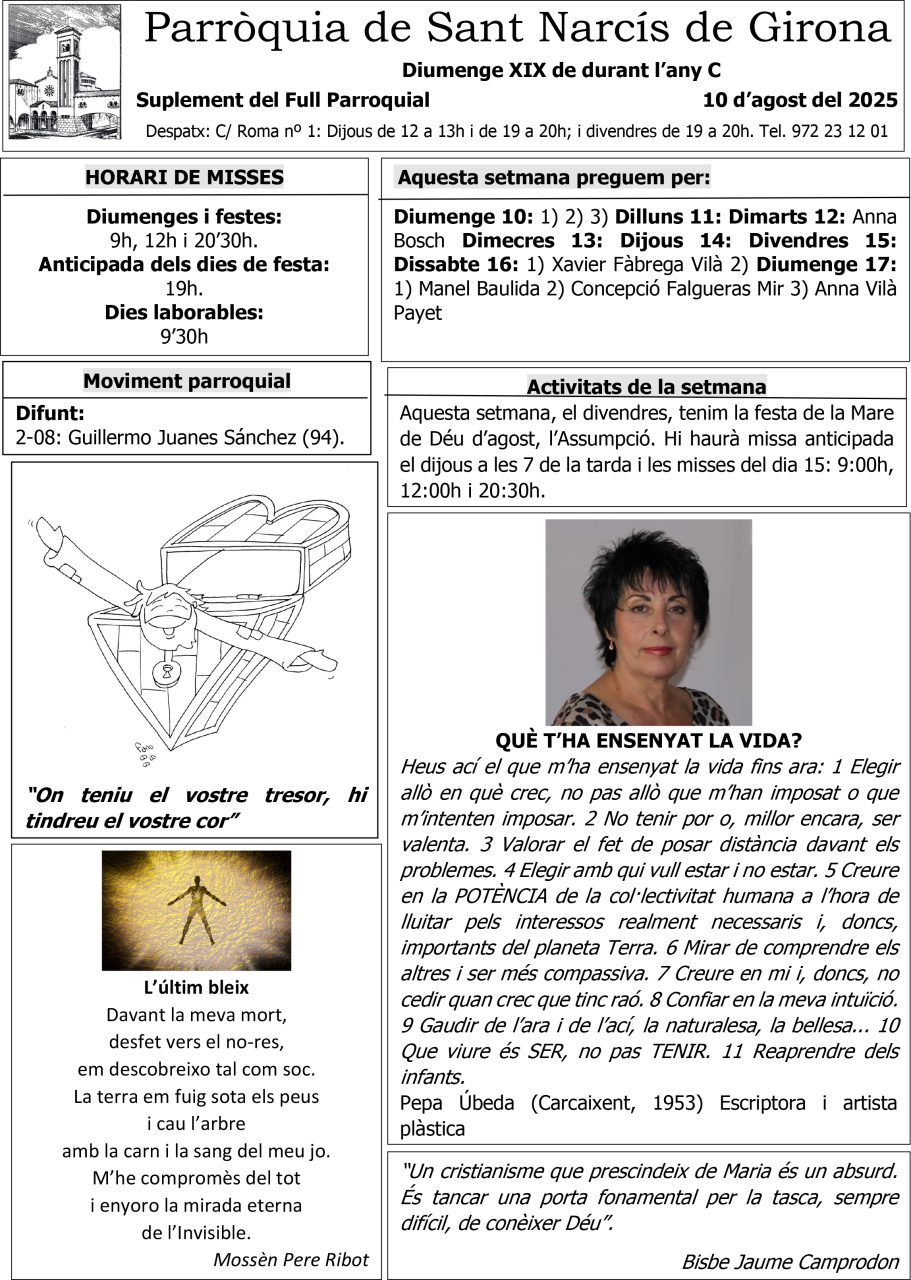
EL GUETO I ALTRES POEMES
Published by PUV (Publications of the University of Valencia, 2025)
This is my latest translation from English to Catalan. Just published.
(THE GHETTO AND OTHER POEMS)
For the first time in Catalan, the translation of one of the fundamental poetry collections by Lola Ridge (Ireland, 1873 – United States, 1941), the great writer and anarchist, Marxist and feminist activist.
In addition to the long poem "The Ghetto", which portrays the lives of Jewish immigrants living on the Lower East Side of New York, there are essential poems such as the tragic "Lullaby" and the terrible "Frank Little at Calvary".
His poetry presents rich political, civil, urban, mystical and ecological nuances.
There are illustrations made by myself for each of the poems.
Index
Introduction
The Ghetto
Manhattan Lights
Labor
Accidentals
L’ESPANT I JO (THE FEAR AND ME) ON YOUTUBE
My friend Mari Carme Arnau, a poet among many other things, asked me for two poems so that an acquaintance of hers could add music and images to one of them and upload it to YouTube.
This has been the result:https://youtu.be/_DfQNKtE4O0
THE MARIA BENEYTO YEAR
The Acadèmia Valenciana de la Llengua celebrates the Maria Beneyto Year (2025) by publishing an unpublished novel of hers: Al limit de l’absurd.
Carmen Manuel, professor of North American Literature at the University of Valencia, was the coordinator.
I have done the illustrations.
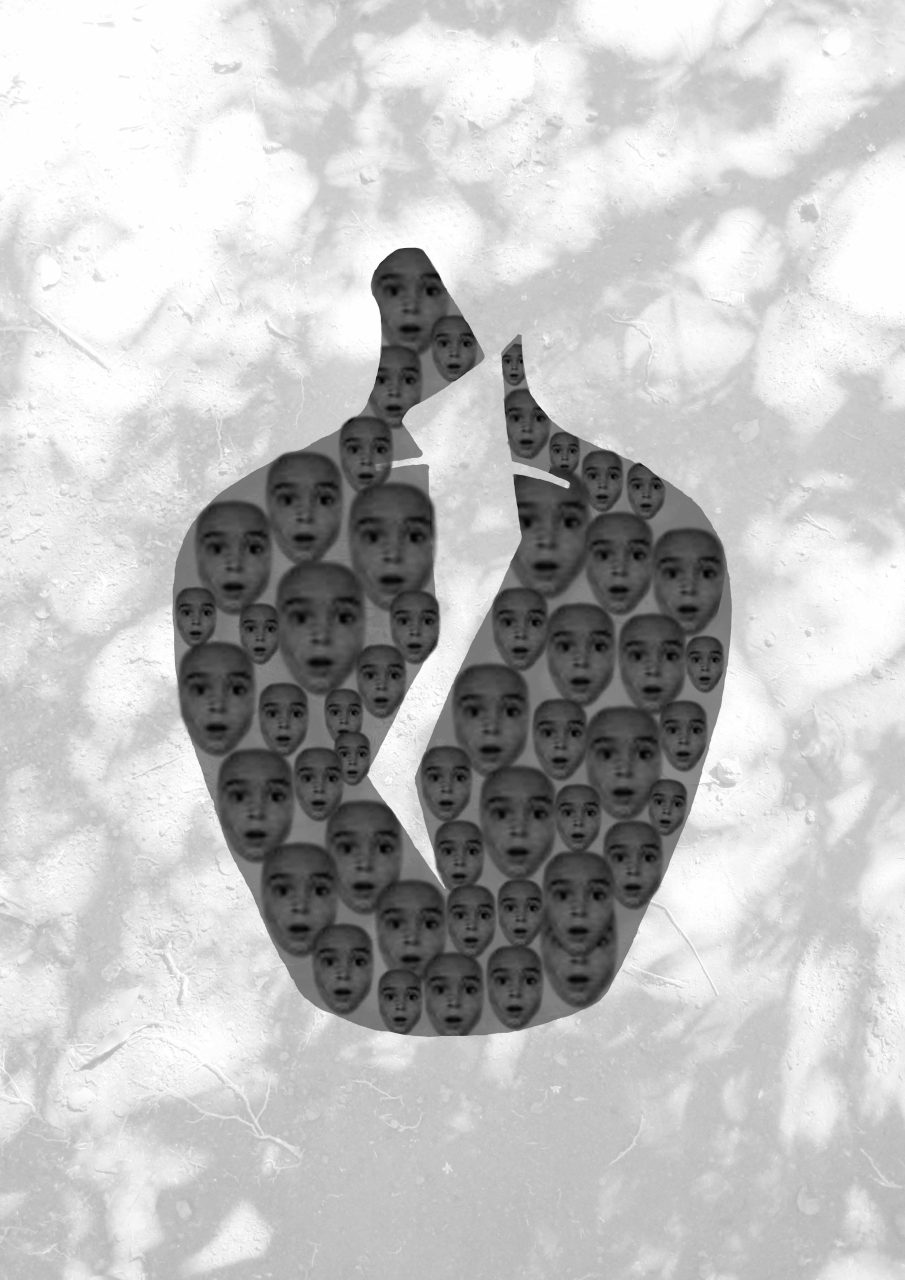
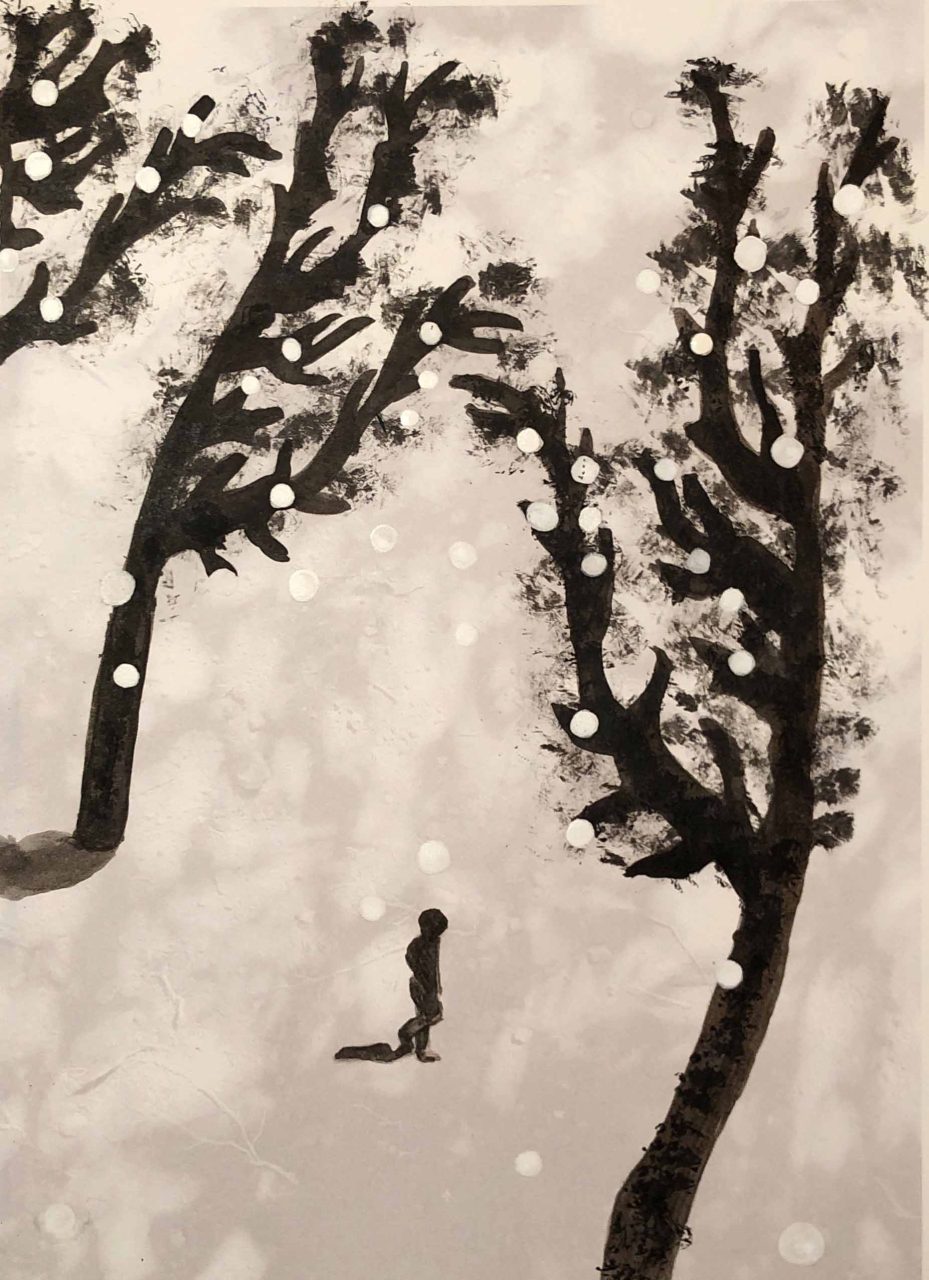
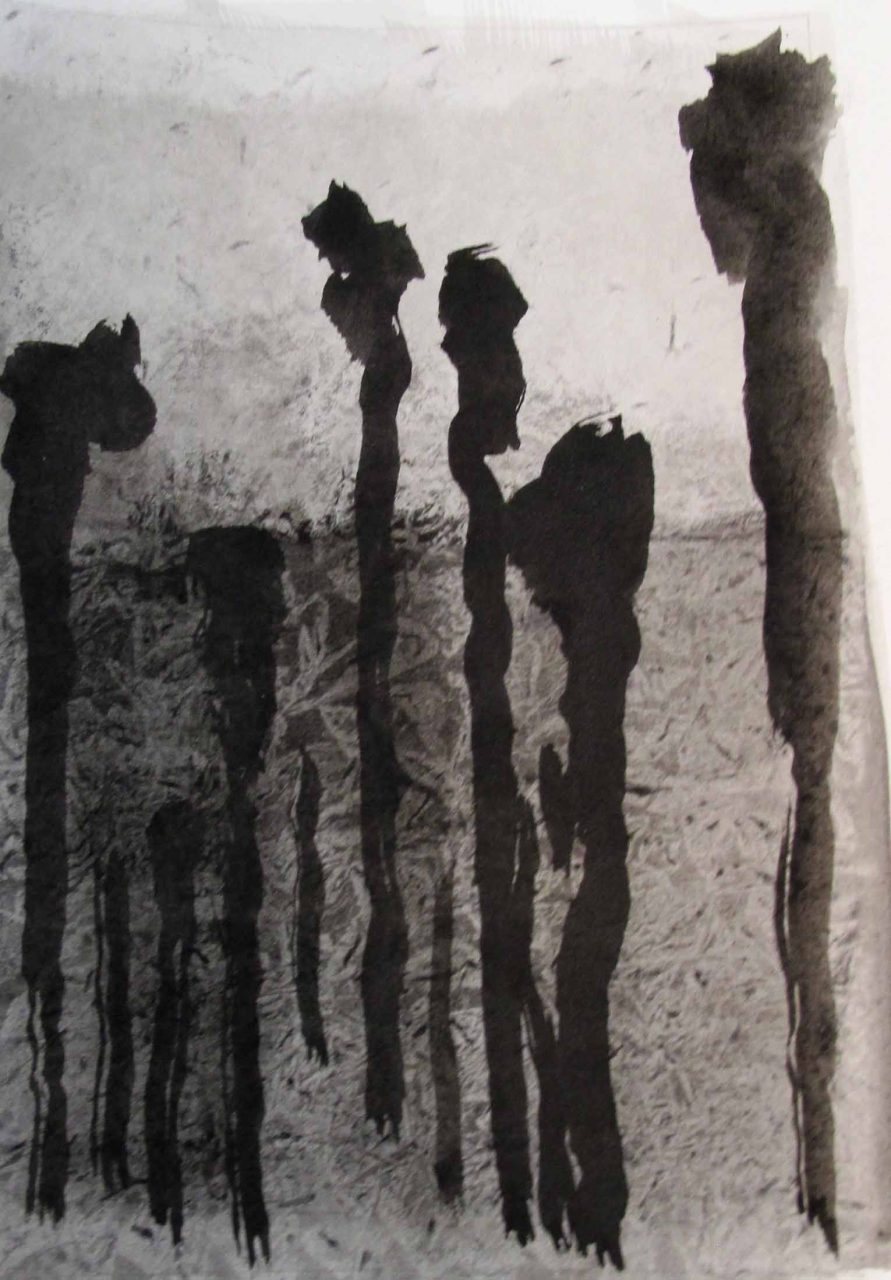
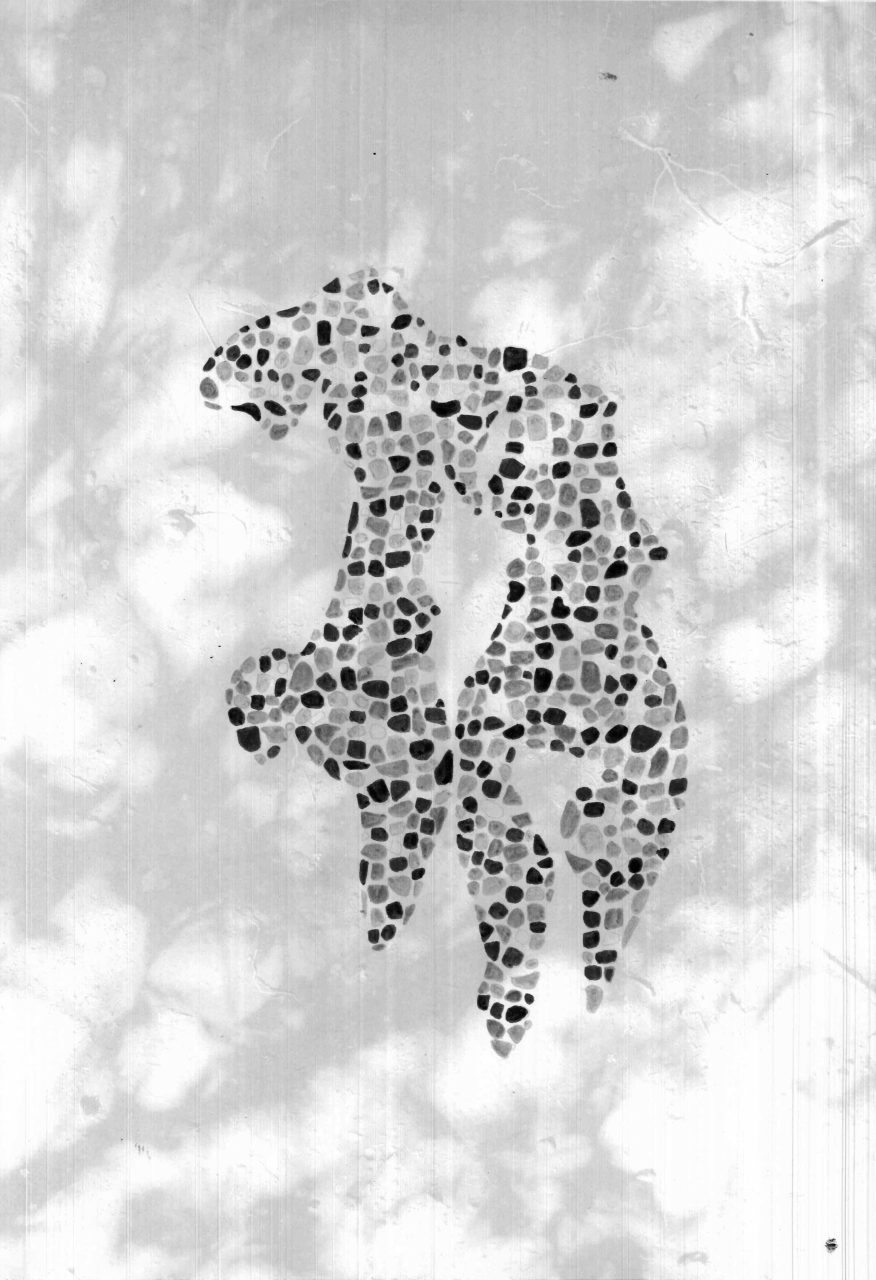
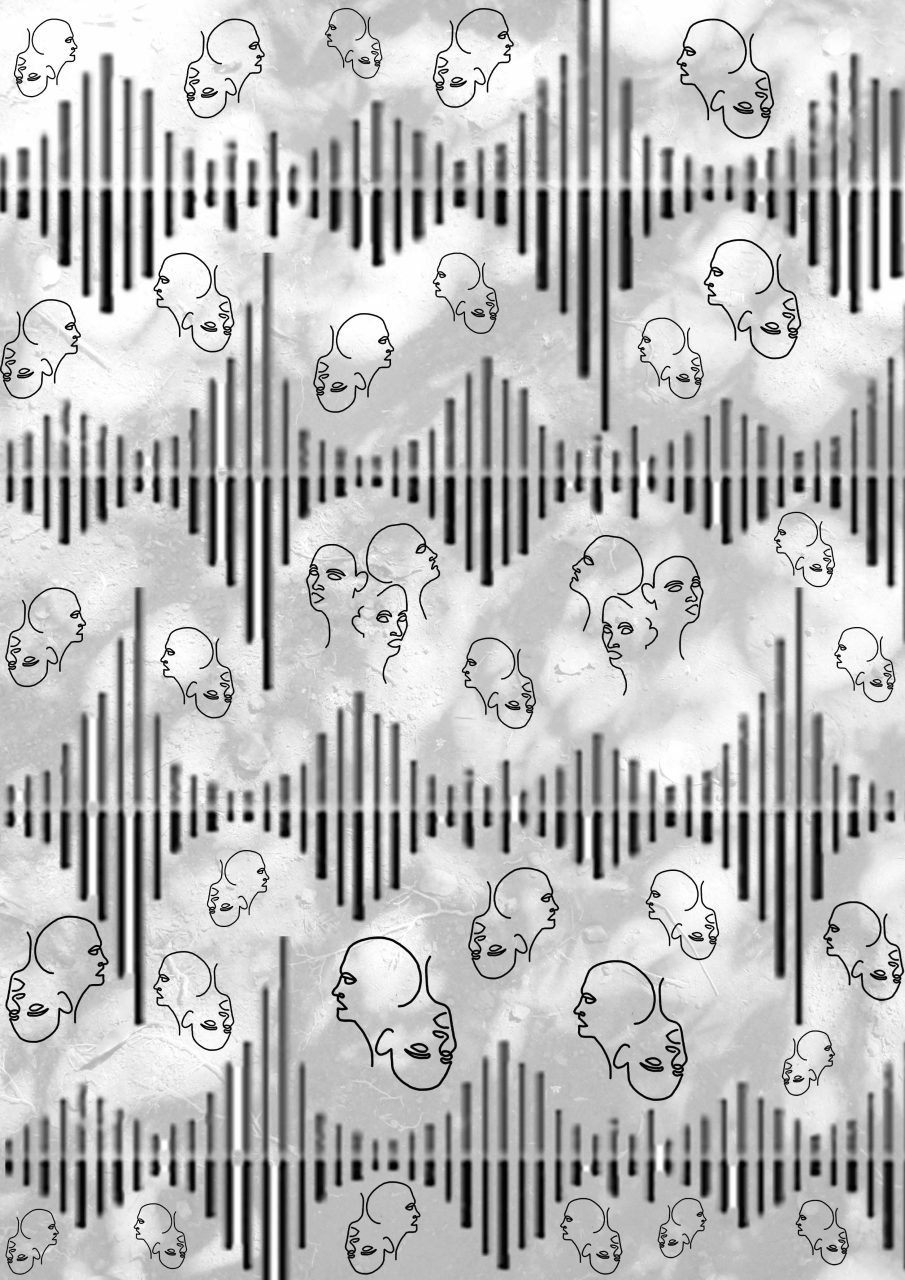
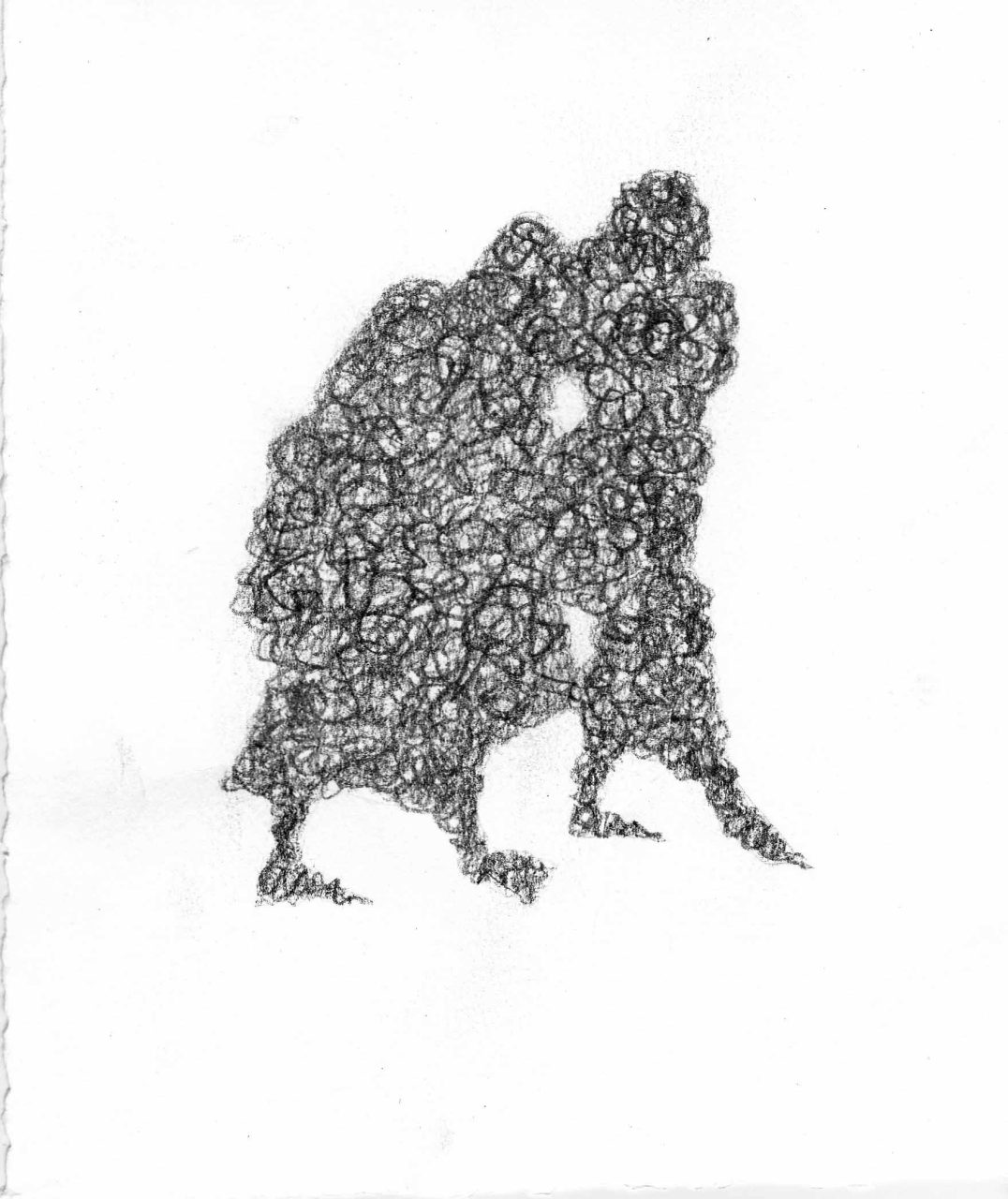
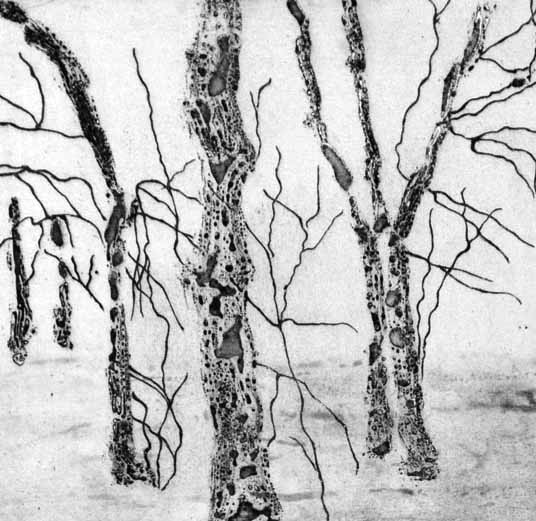
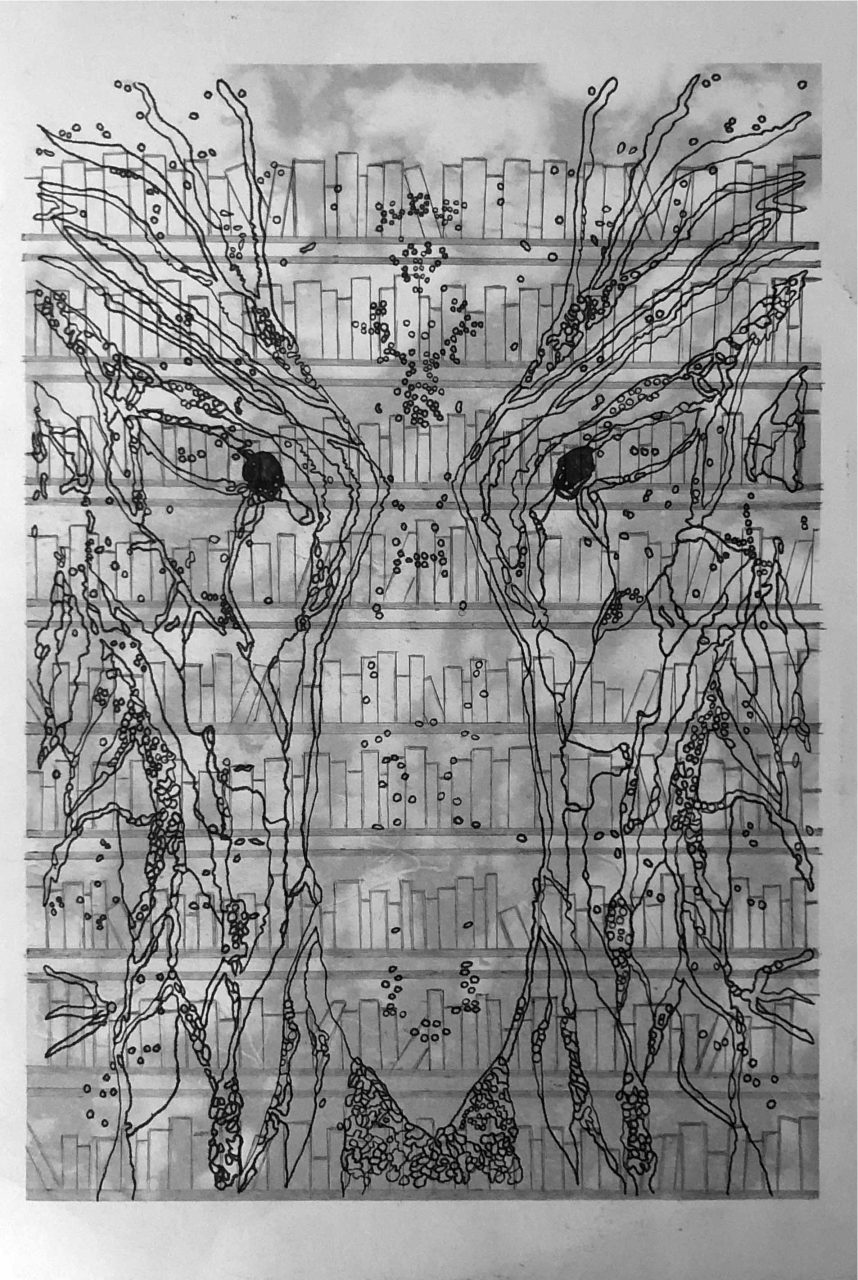
THE LLUÍS ALPERA POETRY FESTIVAL
Organized by Victòria Cremades, Miquel Cruz, and Isabel Marcillas-Piquer
University Headquarters of Alacant City
Ramón y Cajal, 4, St. Alacant
Saturday, May 31, 2025. From 10:00 a.m. to 1:30 p.m.
The coordinators thus revive a celebration that was started by Isabel Marcillas and Lluís Alpera and that lasted until the poet's death in 2018.
Following a request from some poets to revive it, the time has come, and in memory of Lluís Alpera, we decided to name the event after him.
The culmination will be the publication of a collective book of poems by all the attending poets.
QUE TORNE LA JOIA PURA DEL CARRER (LET THE PURE JOY OF THE STREET RETURN)
Octubre Centre de Cultura Contemporània
Sant Ferran Street, 12. Ciutat Vella. 46001 City of Valencia.
Wednesday, April 30, 2025, at 7:00 p.m.
One hundred and fourteen poets in Catalan and Spanish participate in this anthology in solidarity with the victims of DANA, especially those in the book sector.
I collaborate with the poem “Diàleg amb l’aflicció” (Dialogue with Grief).
It has been published by Onada Edicions.
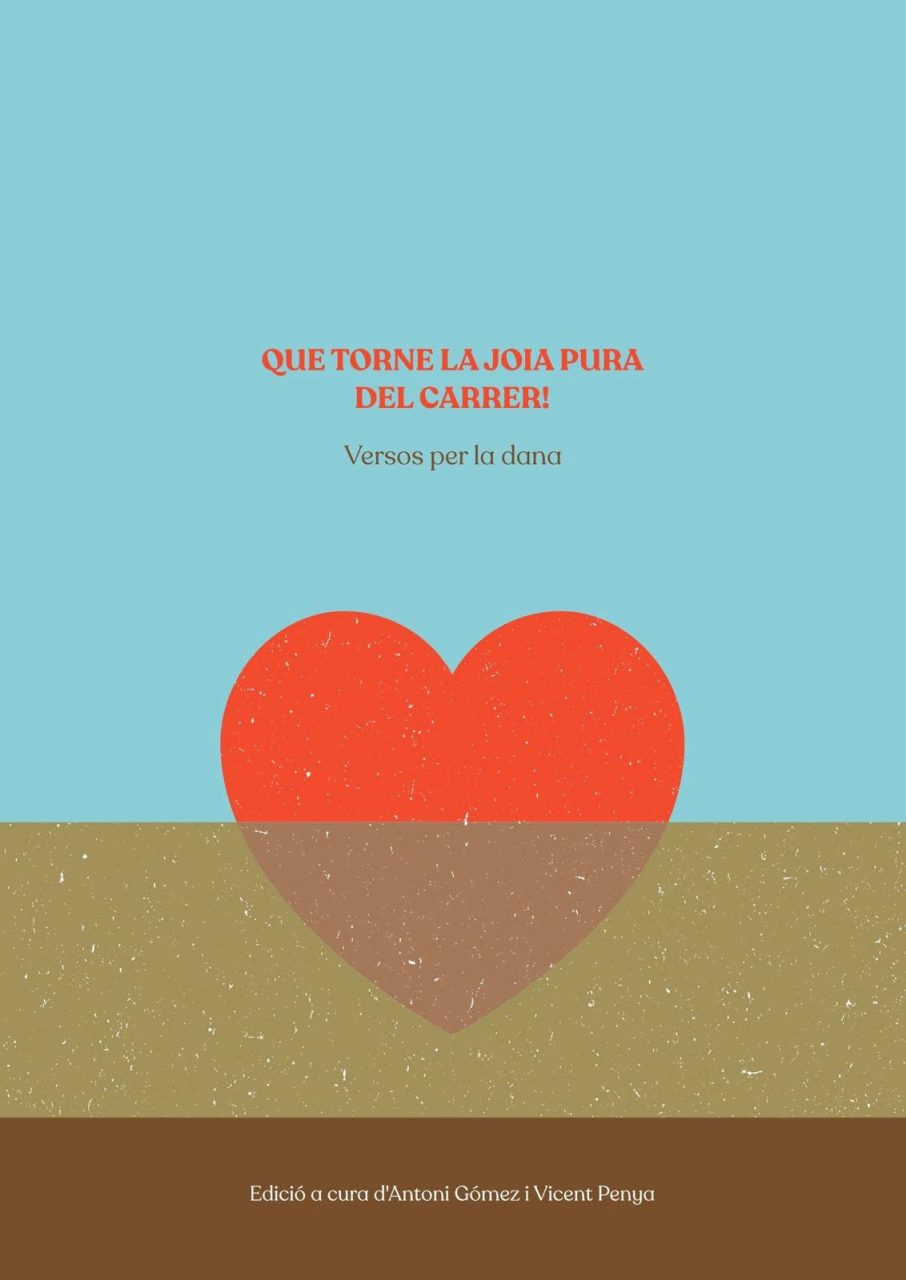
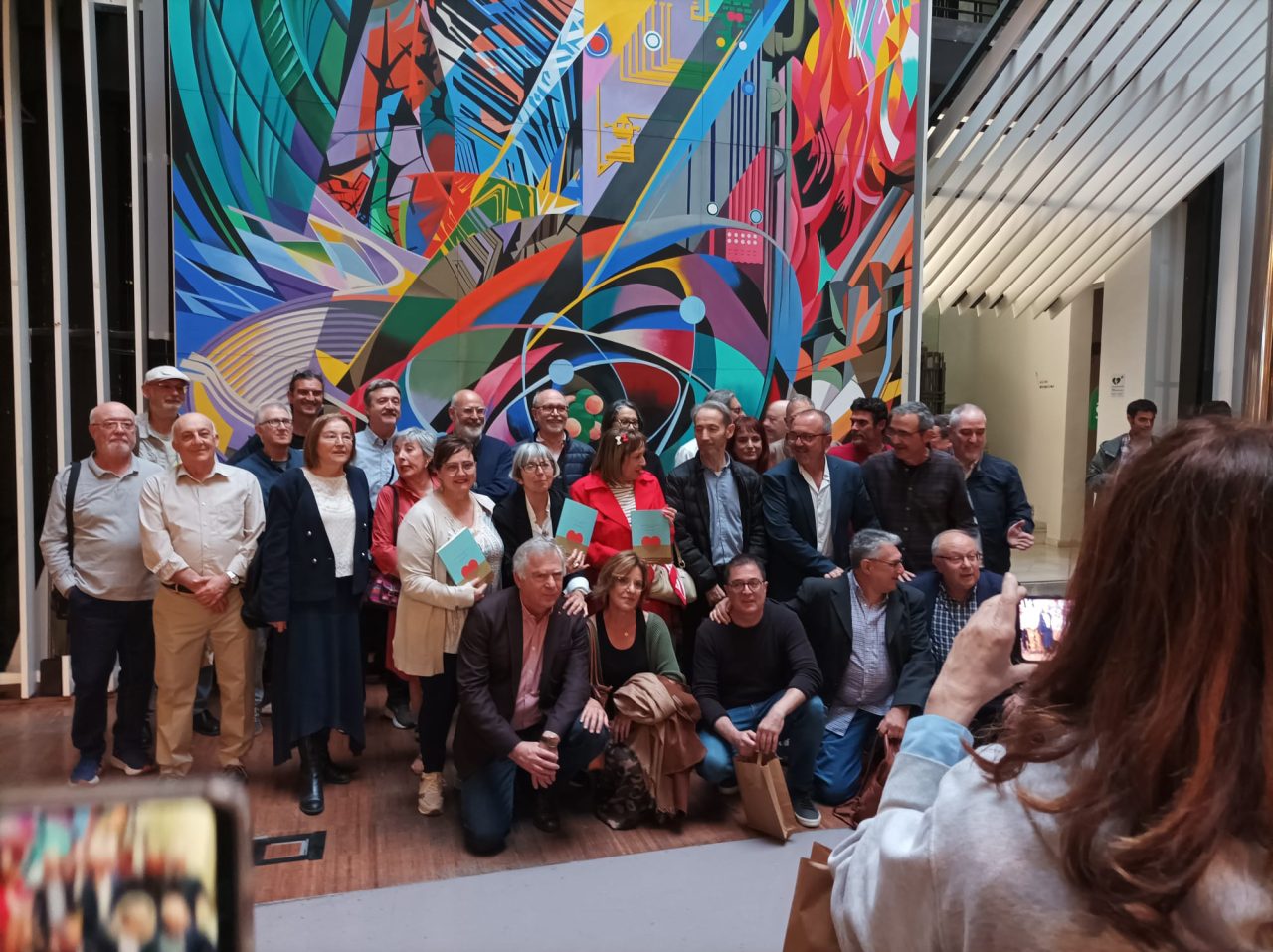
News in the LEVANTE newspaper about the poetry collection https://www.levante-emv.com/morvedre/2025/05/20/cien-versos-antologia-poesia-libro-autores-solidaridad-dana-afectados-poetas-valenciano-castellano-publicacion-antoni-gomez-vicent-penya-117599952.html
TIEMPO DE POESÍA (POETRY TIME)
2025 Edition
“Leer es un Derecho” (Reading is a Right) Project
Thanks to the invaluable work of ANTONIO UREÑA and the international launch by the Colombian newspaper Panorama Cultural, the 2025 Edition of the magazine TIEMPO DE POESÍA was released on April 23.
My contributions have been the cover of the magazine and the poems “A Particular Goodbye in Your Gaze” and “Note After the Departure.”
This issue is dedicated to the poet Ángel González.
Article by Antonio Ureña about Ángel González https://panoramacultural.com.co/literatura/10618/angel-gonzalez-o-la-poesia-de-la-honestidad
Colombian Newspaper “Panorama Cultural” https://panoramacultural.com.co/literatura/10631/tiempo-de-poesia-2025-un-encuentro-brillante-para-las-letras-de-las-dos-orillas
WE TALK ABOUT ART, COMMUNICATION, POLITICS… WITH PEPA ÚBEDA
On Tuesday, April 15, I was interviewed live, at 8 pm, by those responsible for the ATENEU DEMOCRÀTIC DE CARCAIXENT: Anna Oliver I Borràs and Ferran Dalmau I Rovira.
Here you have the link: https://www.youtube.com/live/-Rlu0Gxu7_4?si=uNLWVKePMafC7HcF
Presentation of the book “El mismo fuego” by Jorge Majfud
Berlín Bookstore
Polo y Peyrolón Street, 1. Valencia
Free admission until full capacity is reached
Tuesday, April 1, at 7:00 p.m.
Jorge Majfud is a Uruguayan-American novelist, essayist, translator, and university professor. A descendant of Lebanese and Spanish immigrants, he graduated in Architecture from the University of the Republic of the Uruguay. He has worked as a mathematics teacher and structural calculator in various countries. He is currently a professor at Jacksonville University and regularly contributes articles and interviews to various internationals media outlets. His books have been published mainly in the United States, Spain and Latin America.
He has published novels and essays that appeared in media outlets such as Milenio Diario from México, La República from Montevideo, Panamá América, Cambio 16 from Spain, La Vanguardia from Barcelona, Courrier International from Paris, Hispanic Culture Review from George Mason University, Revista de Crítica Literaria Latinoamericana from Dartmouth College, Pegaso from Oklahoma University, Texas State University, Washington University Political Review, Chasqui Arizona State University, Hispamerica Maryland University, United Nations Chronicle, UNICEF, Tiempos del Mundo from Washington, Monthly Review and Political Affairs from New York, The Huffington Post, Jornada from La Paz, El Nuevo Herald from Miami, Página/12 from Buenos Aires, Radio Uruguay, Radio Nacional de Argentina, Radio Exterior de España, Radio Popolare Roma, The Zero Hour, NTN 24 TV, Telesur and RT TV, and others.
He is a member of the International PEN club. He received the Excellence in Research Award from Georgia University (2006) and the Faculty Award for Excellence in Scholarship and Professional Activities and First Prize for a novel published in 2018/2019 from Orizzonte Atlantico, Italy. In 2012, he was chosen by Foreign Policy as «Latin America’s most influential intellectual».
In PUV (Publications of the University of Valencia) has published the following titles:
- U.S.A. ¿Confía Dios en nosotros?
- Neomedievalism. Reflections on the Post-Enlightenment Era
- Perros sí, negros no: las raíces y los frutos del racismo estadounidense
- La privatización de la verdad: la continuidad de la ideología esclavista en Estados Unidos
- El otoño de la plutocracia americana
- Crisis de las democracias liberales: el derrumbe de la Pax americana
- Moscas en la telaraña: capitalismo anglosajón y postcapitalismo norteamericano
THE NOVEL El mismo fuego
El mismo fuego (First International Independent Literary Prize from Orizzonte Atlantico for a novel published in 2019) is a novel and an existential autobiography based on the author’s experiences during the last military dictatorship in his country. The actual facts, names, country, and subsequent developments of various tragedies have been altered to protect the truth. With a syntactical structure that lacks the relative pronoun «that», the novel expresses in language the same functional absences that exist in the absolute memory of its protagonist, the child José Gabriel, without preventing him from representing a world that his exaggerated memory records in detail but his understanding cannot encompass in its entirety. «One morning, the children were playing in an old wagon when a gunshot rang out. Why are we born, if we have to die? The years go by, like the trees pass by the train window; and Jorge continues searching for the answer» (Eduardo Galeano).
TEXT OF MY INTERVIEW
Good afternoon to everyone present
First of all, many thanks to Carmen Manuel for inviting me to share this table with her, with the author who brings us together today, and with Vicent Cucarella, whom I just met.
When I started reading the book, I couldn’t put it down, despite my many obligations. However, I have the immense privilege of sharing a table with the author, which allows me to know much more about it.
Since Carmen Manuel and Vicent Cucarella’s presentation of him has been magnificent, all that’s left for me is to ask questions, and I’ll try to make the most of it.
First question: The firs impact was how much it reminded me of Gabriel García Márquez. His novel tells of an immense and intense family saga that shapes the political history of Latin America. Am I right?
Second question: Latin America literature continues to be the great developer of magical realism, even though it originated with the Italian Massimo Bontempelli. Do you feel there are aspects of this narrative movement in your novel?
Third question: Fear – Religion – Power. A tria I perceive in your novel. What do you think?
Fourth question: I also notice a choral character in your novel, like Miguel de Cervante’s Don Quijote. That is, a collection of stories that form a backbone, although it also has a lot of spherical universe. What do you think?
Fifth question: the central importance of memory in your novel, in each and every one of the stories that unfold within it. Why?
Sixth question: Do you consider the passage of time to be omnipresent?
Seventh question: Are there allusions to Latin American dictatorships? This could also apply to the most recent one we suffered. Is it through allegories, like the one we see on pages 43-45?
Eighth question: Despite these intermittent flashbacks, there’s also a centrality to the present through the enhancement of the senses. It made me think of a great culinary encyclopedia applied to the story of its characters. The feminine sense of smell sands out above all. And then there’s sight, taste, and touch. Do you agree?
Ninth question: There was also a space for characters who didn’t want to take risks to avoid problems with the dictatorship, like the bookseller. These are completely real characters in any politically conflictive situation. Why did you want to give a role in the story, and why through a bookseller?
Tenth question: Within Latin American dictatorships, you’ve also given prominence to the United States of America. Because they strengthened those dictatorships for economic interests. Your novel even reveals that the so-called “great president of democracy” (Franklin Delano Roosevelt) did everything possible to prevent European Jews from landing in the country. They were suspected of radical leftism. However, the ruling classes put no obstacles in the waty of the entry of Nazis after the war. Why do you thin this aspect of the country you live in is so important?
Eleventh question: Why does your protagonist have so many names? (Gabriel, José Gabriel, Josesito…)
Twelfth question: There’s a very interesting combination in the wat the dialogues are handled. In some cases, they appear in italics. There’s alternating between first and third person. Even, at times, second person. What other stylistic aspects could you highlight, and why did you use them?
Thirteenth question: It’s very interesting how the use of multiple adjectives before the noun is very rare. Even more so than English usually does. Why is this?
Fourteenth question: I found the use of a very neutral standard register of Spanish curious. It’s impossible to distinguish which part of Latin America you’re referring to. Why?
Fifteenth question: Madness in the novel. Way out? Repression?
Sixteenth question: There’s a melancholic, allegorical tone at the end when Daniela the daughter looks exactly like Daniela the mother. What was she aiming for?
Seventeenth question: The title of the novel —El mismo fuego— has an adjective —fire— applicable to the hair color of Daniela mother and Daniela daughter. Did you this consciuously?
RECORDING OF THE EVENT https://youtu.be/zBnbm2Nj1AQ?si=205u4t3jaPeM-iSa
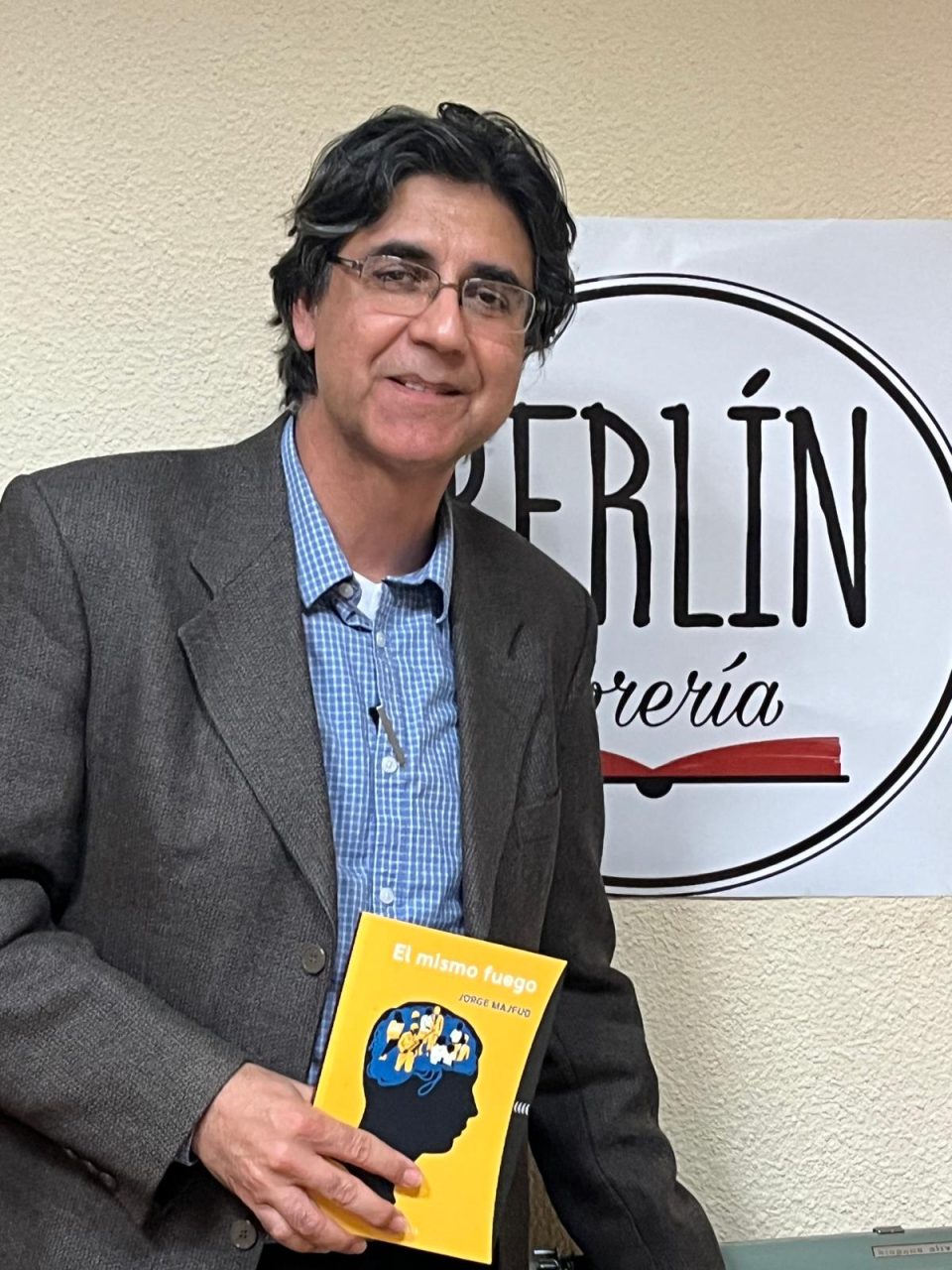
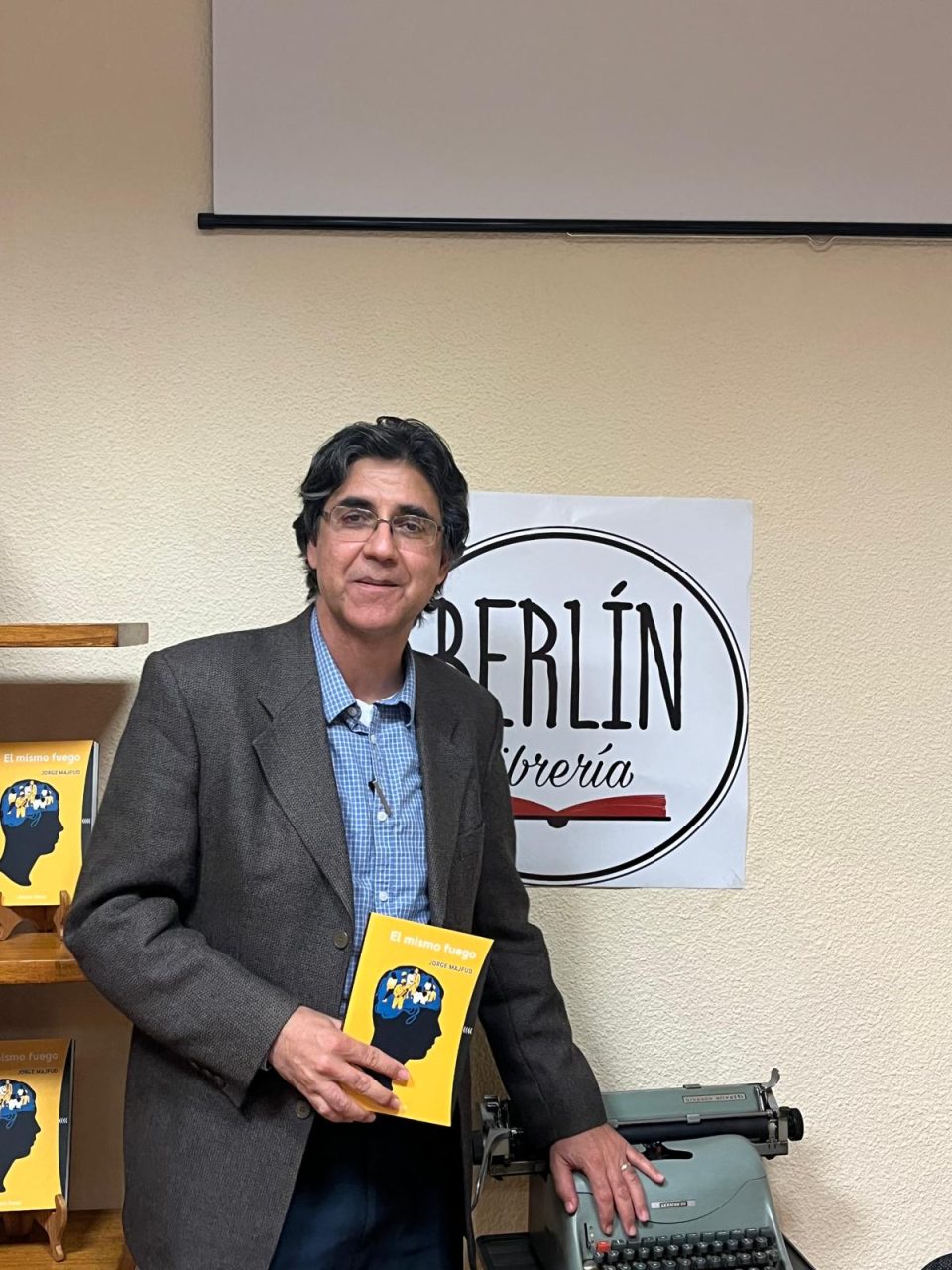
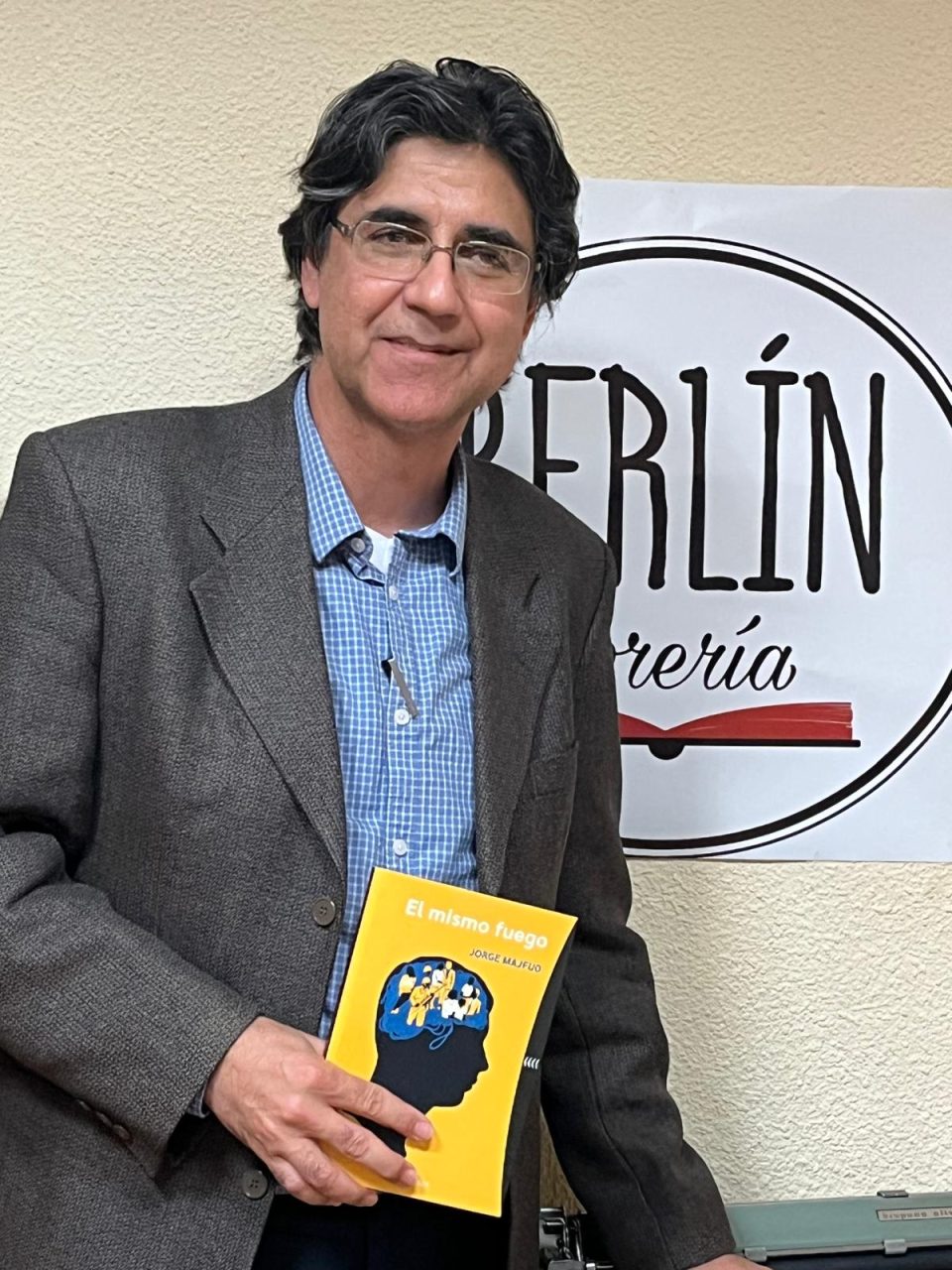
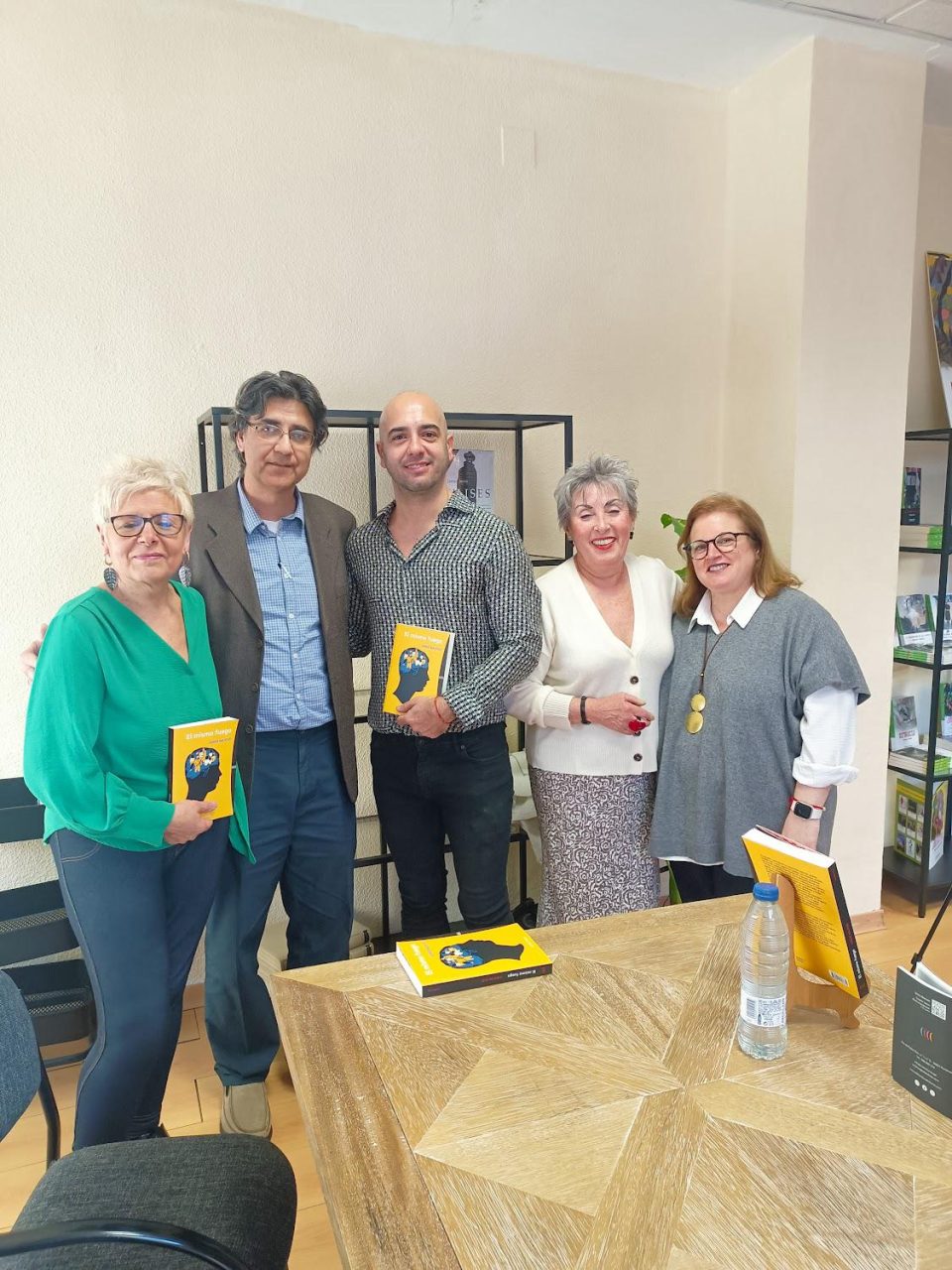
Presentation of number 3 of Val/15, QUADERNS DE POESIA VALENCIANA. 2025
Espai Cultural. Department of Philology, Translations and Communication
32, Blasco Ibáñez, Avenue. Valencia city.
Friday, February 28, 2025, at 7:00 p.m.
Last February 28, number 3 of the QUADERNS VALENCIANS DE POESIA (2025) was presented in the Espai Cultural (Cultural Space) of the Department of Philology, Translations and Communication of the University of Valencia.
The act was structured in three parts: presentation, round table and recital.
In the presentation, Marc Caballer Galcerà participed as director, Aina Torres Latorre as vice director, Maria Carme Arnau as literary advisor and Beatriz Marrodán Verdeguer as network manager.
The round table was formed by Maria Carmen Arnau, Aina Torres, Beatriz Marrodán and the poets Vicent Berenguer and Lluís Ferri. They talked about different aspects related to poetry in general and Valencian poetry in particular. Also from the DANA (cut-off low) that so seriously affected Horta Sud region in the province of Valencia.
Finally, Alba Fluixà Pelufo, Pepa Úbeda and Maria Josep Juan Ballester participed by reading their poems, among others.
The closing was accompanied by a meal.
Article about the event in the newspaper LA VEU:
MY POEMS:
PRIMERA PLANA
A tots els perseguitsa l’alba
l’ull notarial de la càmera va enregistrar el teu cos
al cul-de-sac de la mort
al migdia
les tenebres et van barrar les parpelles en ordir un sudari
amb les teves pestanyes
al vespre
eren portada d’un remot diari estranger
les teves despulles
de nit
comparteixes ossari per sota d’una mortalla
de periòdics vells
SOLS QUAN DORMS
quan dorms
i sols quan dorms
s’exposa el teu alè
al testimoni dels meus besos
quan dorms
i sols quan dorms
s’abandona el teu cos
entre els meus braços
però quan et despertes
i sols quan et despertes
em dreces amb la llengua
un imperi entre les cames
CLAUS
et lliuro les claus
dels teus minuts i de les meves hores
dels teus dies i de les meves nits
del teu any indigent i dels meus mesos solitaris
més enllà de quimeres soterrades
també et lliuro les claus
dels teus colpidors matins
i
de les meves exigües vesprades
o
dels teus melancòlics vespres
i
de les meves deleroses matinades
on sojorna el tornaveu
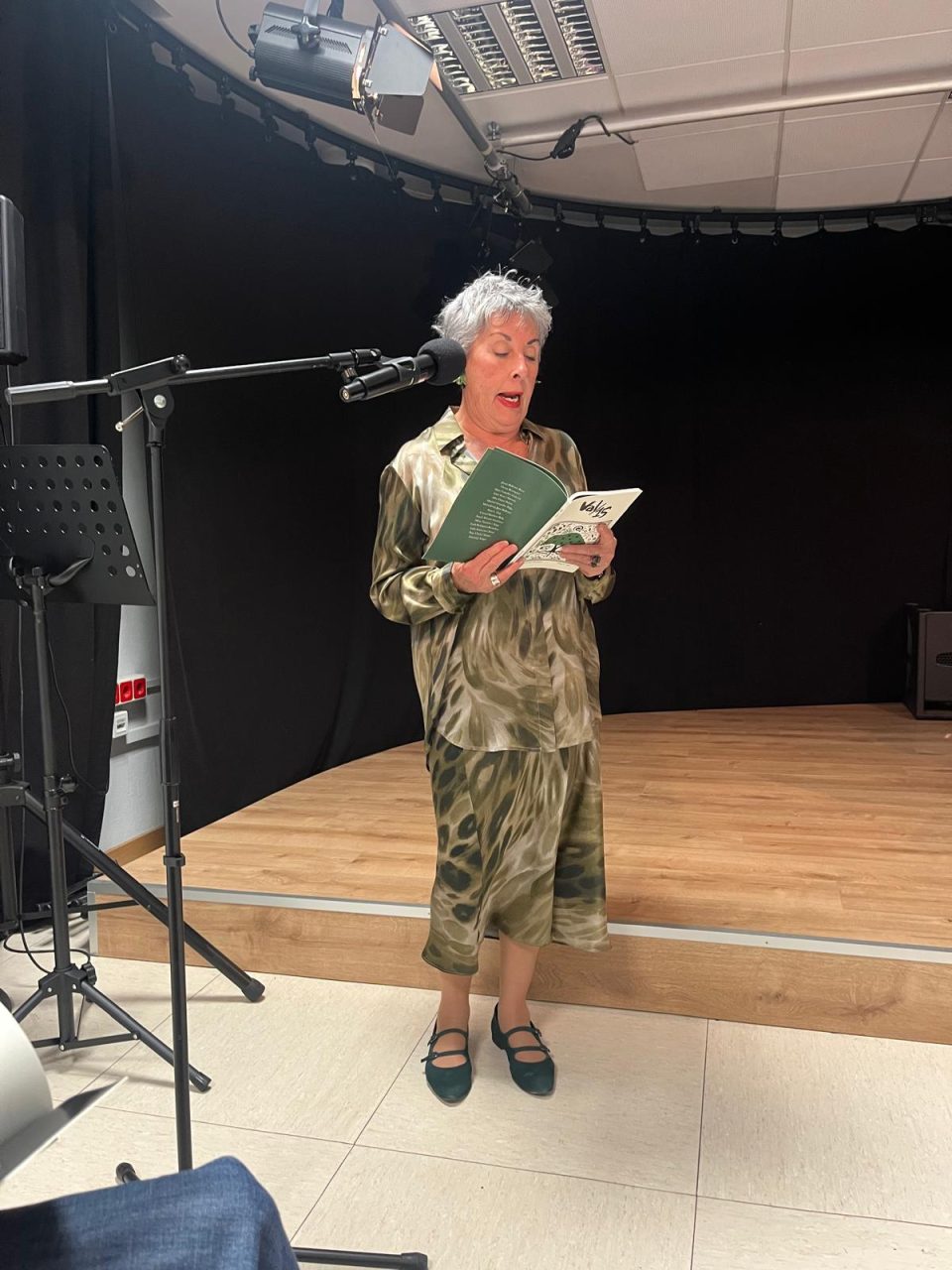
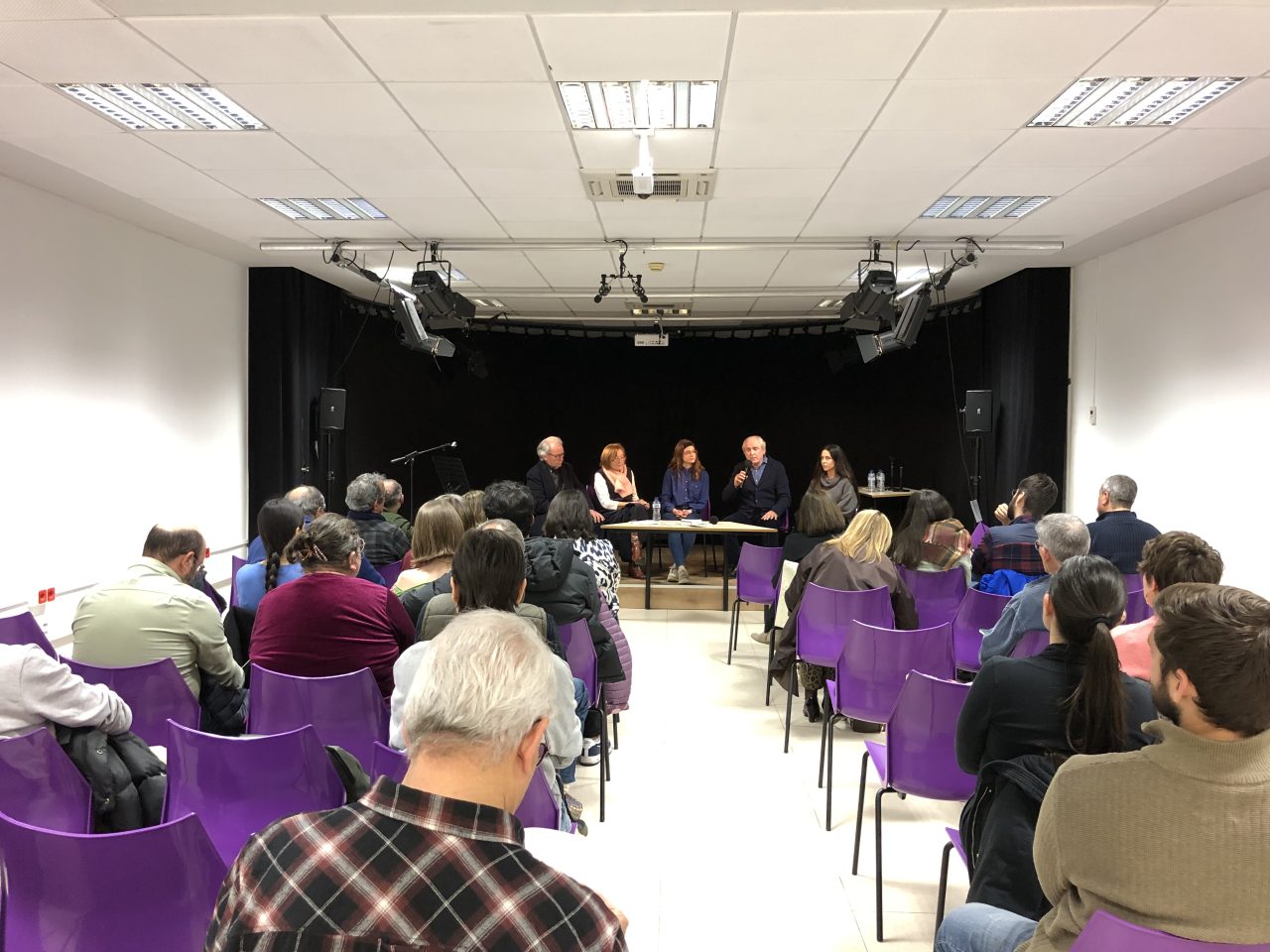
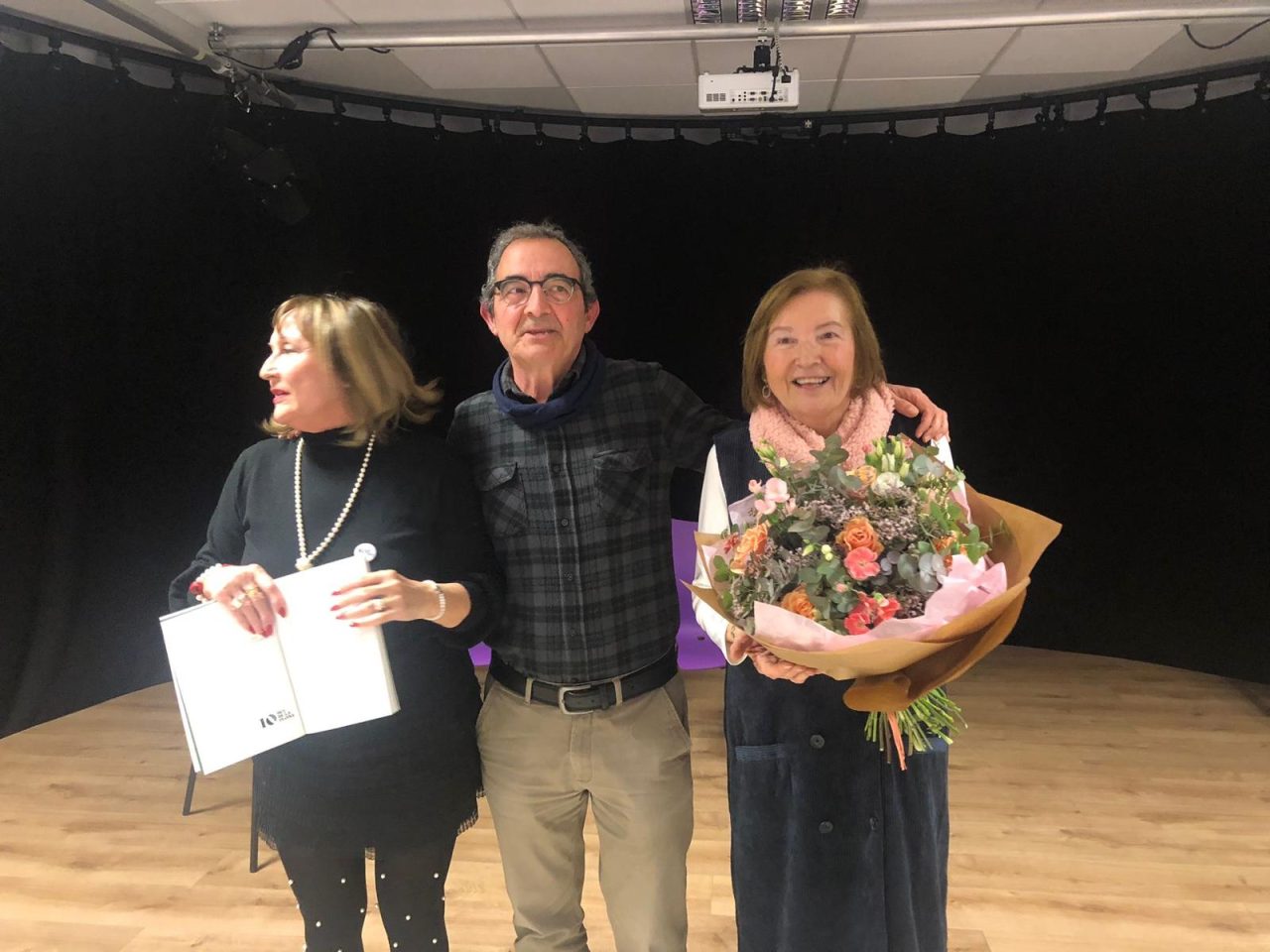
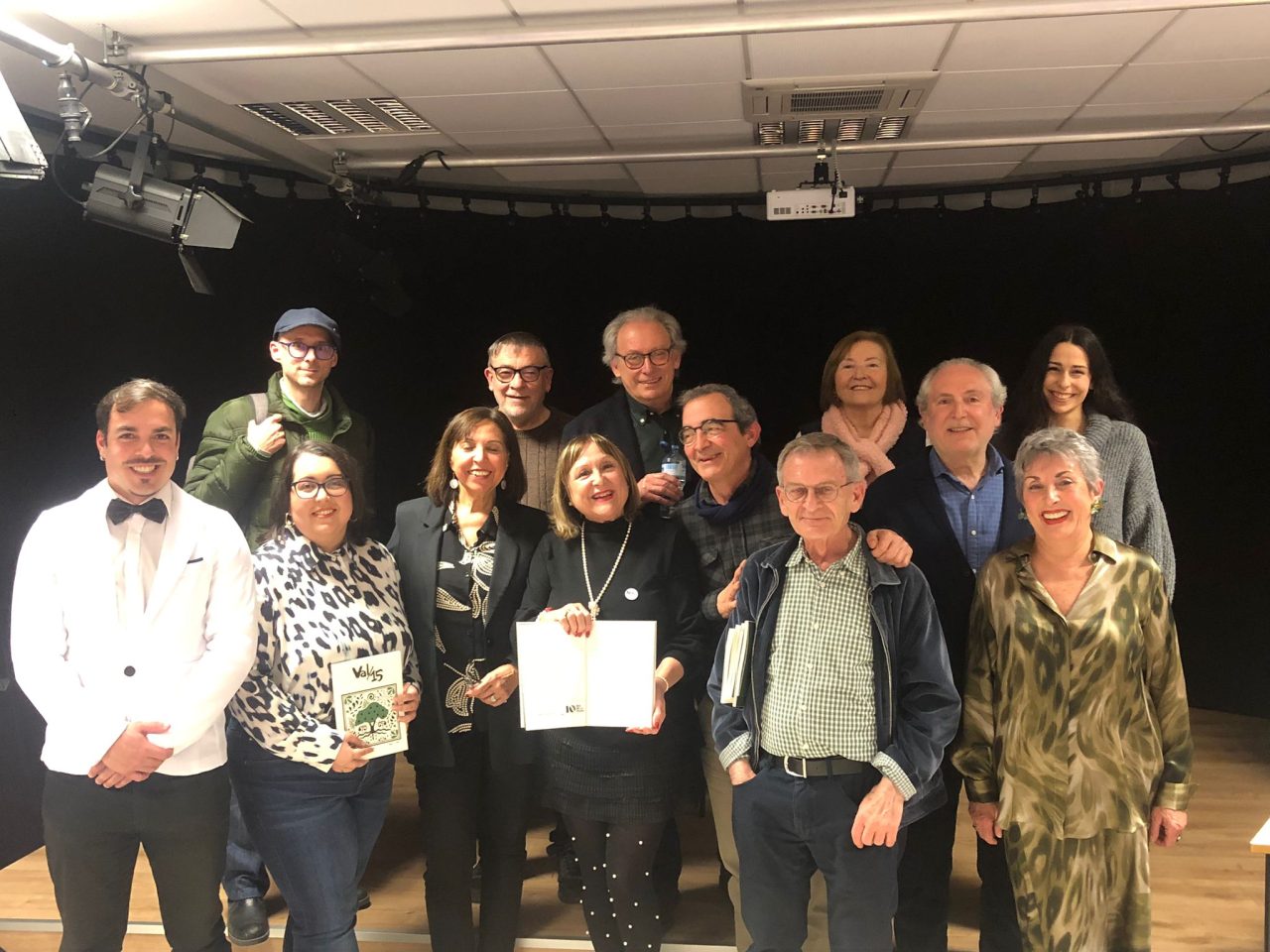
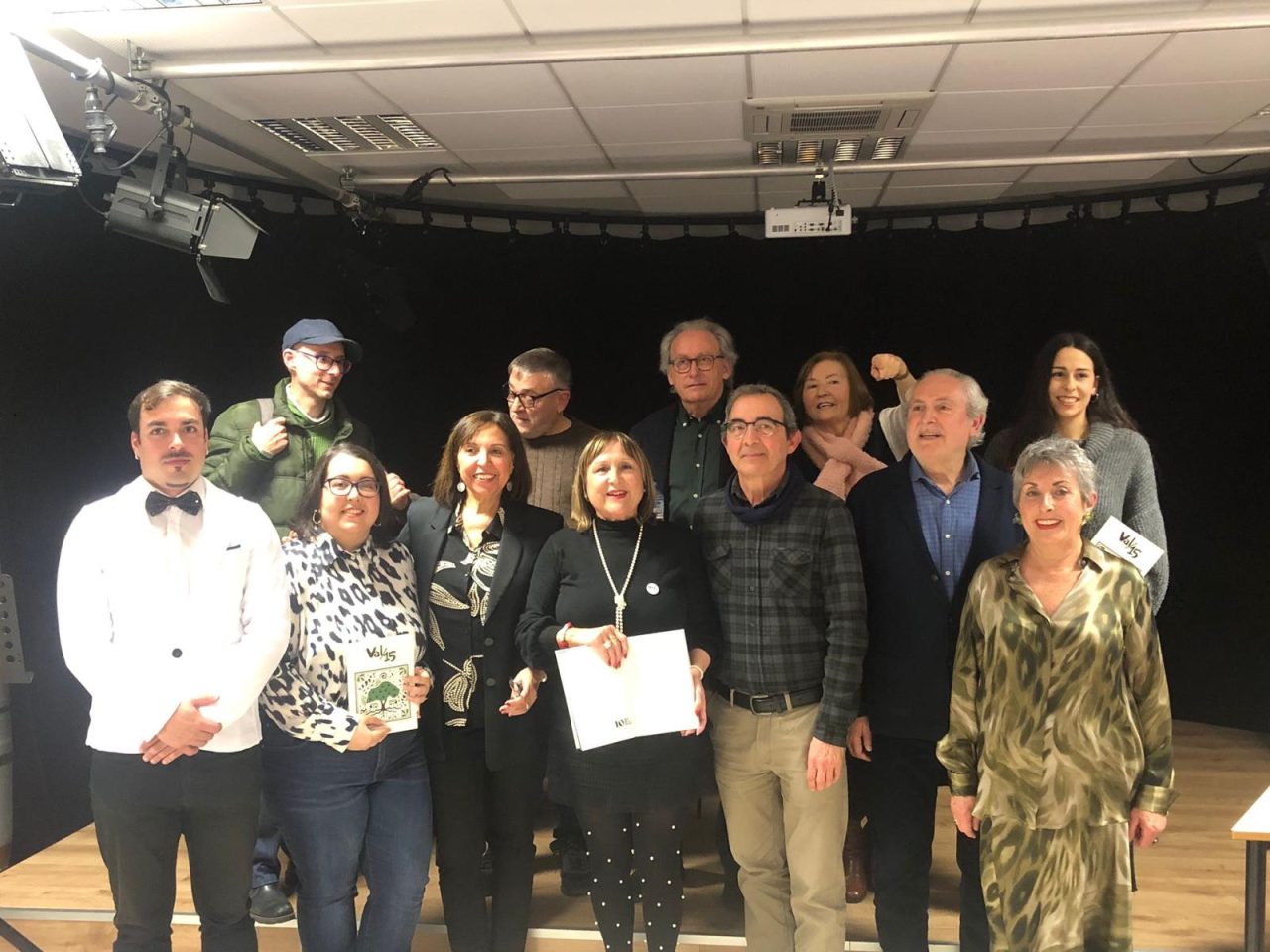
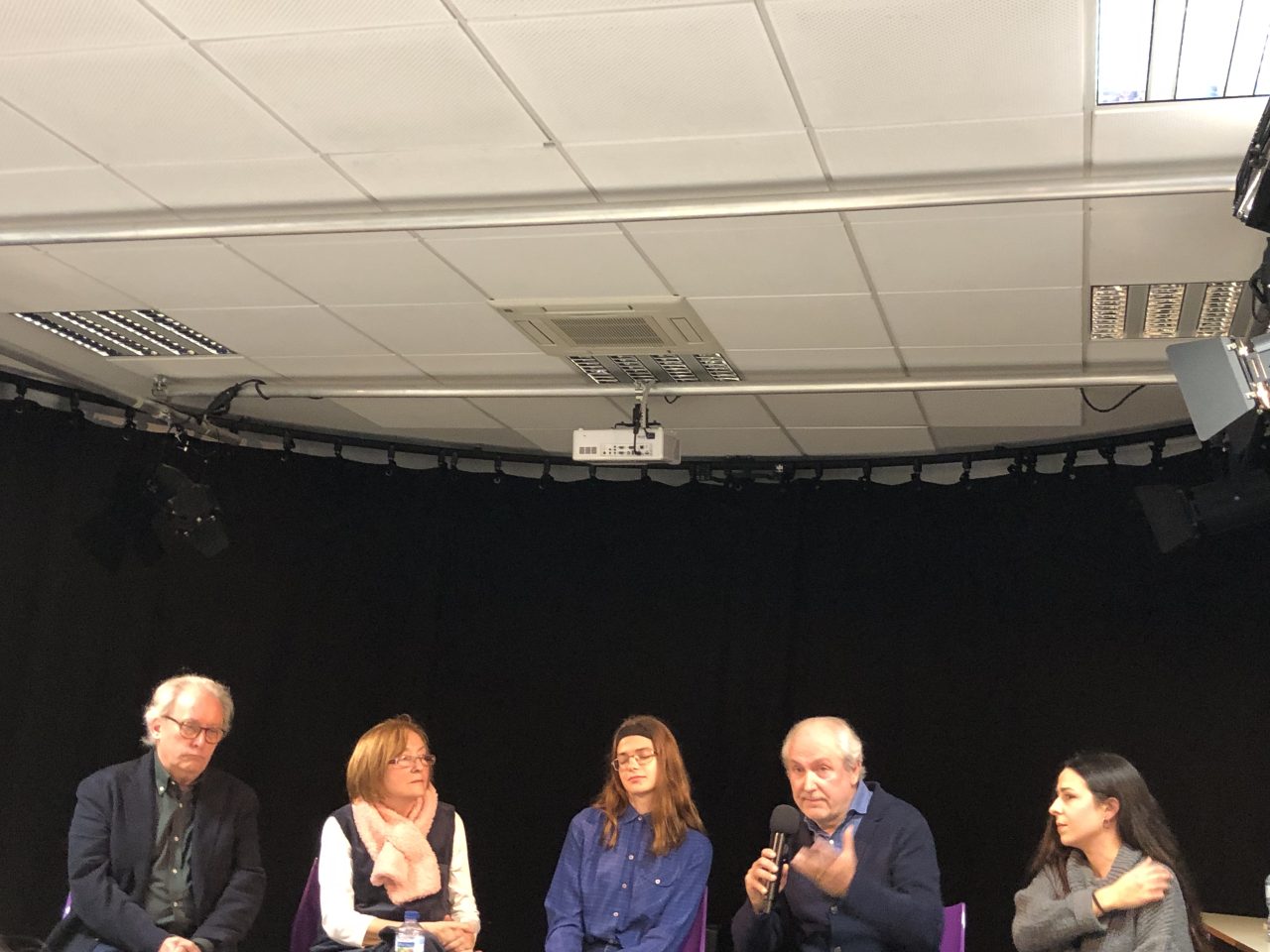
Round Table “Beyond growth for a new social approach”
Rector Peset Residence Hall
Horno de San Nicolás Squre, 4
Friday, February 14, 2025, at 7:00 p.m.
RECORDING OF THE EVENT
https://www.youtube.com/watch?time_continue=5&v=AHWD4LGZRVM&embeds_referring_euri=https%3A%2F%2Fmail.google.com%2F&embeds_referring_origin=https%3A%2F%2Fmail.google.com&source_ve_path=Mjg2Nj
Good evening. ATTAC – PAÍS VALENCIÀ has wanted to echo the most current reflections on climate o collapse change. To achieve this, it has had three exceptional representatives in their respective branches. I will make a very brief presentation, in alphabetical order, of each of them. You can consult much more information on the Internet.
Firstly, we have had the Valencian economist and feminist CARMEN CASTRO, specialized in welfare models, European gender policies and birth leave systems, which was, by the way, the content of her Doctoral Thesis. Both professionally and academically, her contribution to gender quality and public policies, as well as gender mainstreaming, training and employment have been fundamental. In areas related to gender, she has advised public institutions and associations. She also launched the Chair of Feminist Economics at the University of Valencia. Likewise, she has made important written contributions about her field of research and pedagogy. She is also a prominent activist for a change in the social model. She is the author of books such as Claves feministas para transiciones económicas (Feminist Keys for Economic Transitions). She writes for publications such as El Diario.es and CTXT.
Secondly, we have the biologist specialized in Ecology, ALBERTO FRAGUAS, from Madrid, with more than 40 years of experience as a consultant in environmental development planning and in environmental authorization processes. He has combined his technical specialization with activism. He was Dean of the College of Biologists of Madrid, founder of the professional association APROMA and various national environmental conferences. Director of GREEN CROSS (NGO founded by Mijail Gorbachev) and collaborator of organizations such as Alliance for Solidarity, etc. He was director of the Earth Institute and advisor to the Ministry of Environment and Ecological Transition. Likewise, he is coordinator of Political Ecology of ATTAC – Spain and coordinator of the Alliance “Beyond growth”. The topic of his presentation will focus on the civilizational change that we are facing as a consequence of the crises of all kinds that we are experiencing.
Finally, we had the presence of the Valencian urban planner JOAN OLMOS, a civil engineer who joined teaching at the Polytechnic University of Valencia as an associate professor at the School of Civil Engineering. In 1996 he began as a professor at the School of Architecture of the same university until 2012, when he retired. He was Dean of his professional association and General Director of Public Works of the first Valencian regional government, until 1988. Linked from the beginning to the Valencian environmental movement, he collaborated in the creation, 24 years ago, of the multidisciplinary group Terra Crítica, a combative look at the environmental, cultural and urban conflicts of our territory, in contact with neighborhood and social movements. He publishes in specialized magazines and media and attends talks and debates. His latest project together with other professionals and activists is “La Plaça” (The Square) debate classroom. His presentation will focus on the fields that he knows so well, related to the core of the round table that I present.














